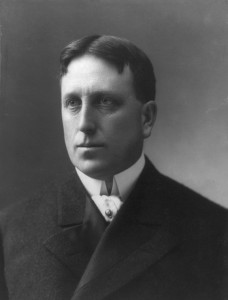 In the early 20th century, when William Randolph Hearst was building his media empire, access to information about the world was controlled by a relatively small number of media outlets. Hearst’s newspapers were able to influence public opinion and world events. He sold a lot of papers through a brand of journalism that came to be known as “yellow journalism.”
In the early 20th century, when William Randolph Hearst was building his media empire, access to information about the world was controlled by a relatively small number of media outlets. Hearst’s newspapers were able to influence public opinion and world events. He sold a lot of papers through a brand of journalism that came to be known as “yellow journalism.”
Hearst used sensationalism, crude exaggerations of the importance of reported events, eye-catching headlines, and poorly researched pieces designed to appeal to “the underdog”. The result was that he sold a huge numbers of newspapers. Around the same time, corporations and politicians realized that they could sell their products by influencing how and what people think. This practice came to be known as “marketing.”
In today’s Internet age, yellow journalism has merged with marketing. The decline of newspapers and network television has encouraged this new form of fake news. And it has become hard to escape. The worst form of this is what we now call “clickbait.” These are generally advertisements, disguised as news, with misleading, sensationalist headlines. The more clicks one of these headlines gets, the bigger a chance that someone will click on an advertisement associated with the headline. The end result is that the publisher will earn some small amount of advertising revenue. With hundreds or thousands of such clickbait pieces published, a clickbait producer can earn significant amounts of money.
While we hope that clickbait doesn’t yet have the power to influence public opinion or world events, it does in fact infiltrate our minds. It’s becoming an ever-larger presence on the web; often overshadowing high-quality content, which looks “boring” in comparison.
Snipe.net, a website for programmers, has decided to do something about clickbait. They created a browser extension called Downworthy. When installed in your web browser, Downworthy will replace “hyperbolic viral headlines” such as “You won’t believe,” with more realistic phrases, such as “In all likelihood, you’ll believe.”
Could the widespread use of something like Downworthy help to make clickbait ineffective and thus eradicate it? Would the result be a more informed populace, or would people just read less overall if headlines weren’t so sensationalist?
